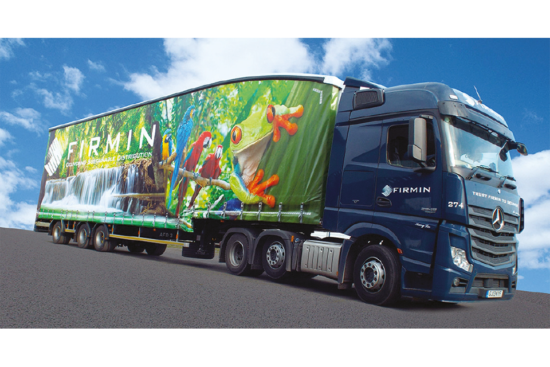Tyre savings through longer lorries
 Switching to LSTs should cut tyre costs (Photo: DfT)
Switching to LSTs should cut tyre costs (Photo: DfT)
Following a trial lasting 11 years, from 31 May 2023 longer semi-trailers (LST) will be permitted on British roads. These trailers measure up to 2.05 metres longer than a standard semi-trailer, and the Department for Transport anticipates their use will lead to substantial economic and environmental benefits. The list of savings includes reduced tyre costs.
According to the DfT, these new lorries need to undertake eight per cent fewer journeys than current trailers to move the same volume of goods. It estimates that this “will generate an expected £1.4 billion in economic benefits and take one standard-size trailer off the road for every 12 trips.”
In an impact assessment document (dated 6 August 2021) proposing that LSTs be allowed into general circulation, the DfT notes that this reduction in trips results in “net benefits associated with less tyre wear and replacements.” It estimates tyre cost savings to be £1,567 for an HGV that travels 85,000 miles a year (in 2019 prices), an amount equal to £0.02 per mile.
In its calculations, the DfT assumes that “LST tyre costs are equal to the tyre costs for a standard trailer,” however it points out that costs for LSTs may actually be even less: “There have been observations of lower tyre scrub associated with the (self-steer) steering axle systems employed by LSTs, which would reduce the frequency of tyre replacements.”
Lower CO2, fewer injury collisions
Announcing the introduction of LSTs on British roads, the DfT estimates that longer trailers could save 70,000 tonnes of carbon dioxide from being released into the atmosphere. Furthermore, trials demonstrated that LSTs were involved in around 61 per cent fewer personal injury collisions than conventional lorries.
“It’s fantastic to see this change for our supply chain come into law, resulting in a near £1.4 billion boost to the haulage industry and driving economic growth. Let the good times roll as we reduce congestion, lower emissions and enhance the safety of British roads,” comments Roads Minister Richard Holden.
Vehicles that use LSTs will be subject to the same 44-tonne weight limit as those using standard trailers. In addition to the possibility of reduced tyre wear, DfT expects that the steering axles used on these vehicles will cause less road wear.
Important benefits
More than 300 companies in the UK took part in the trial. The DfT states that the trial “revealed the important environmental benefits associated with the introduction of LSTs,” including a 70,000-tonne reduction of CO2 and 97-tonne reduction of NOx over the trial – similar to the amount of CO2 captured by roughly 11,600 acres of forest per year and the same as the average annual NOx emissions of around 2,000 diesel cars.



Comments